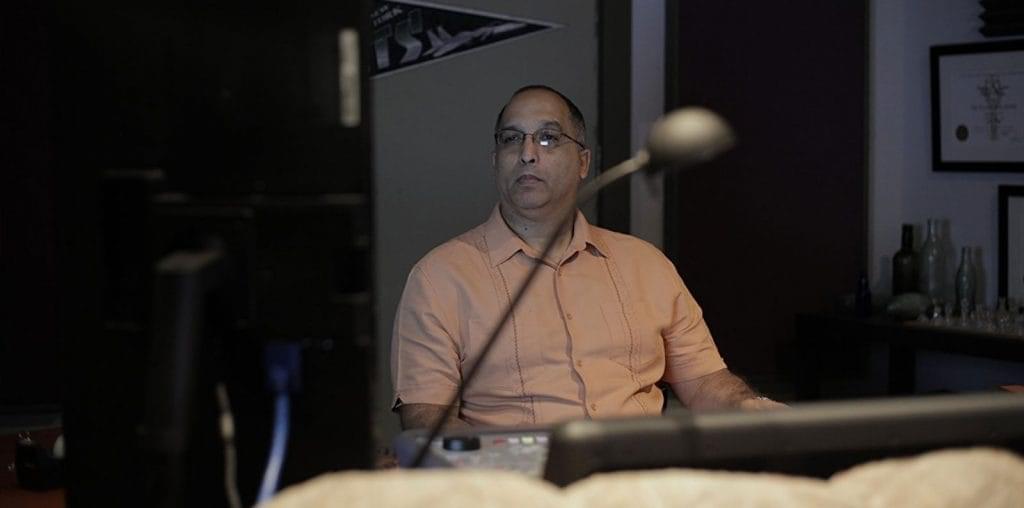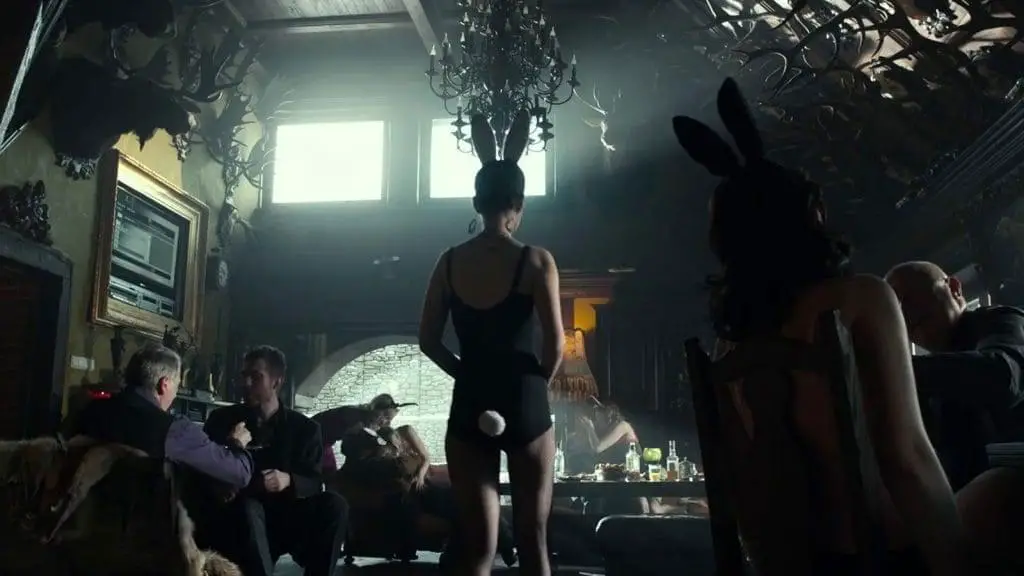
Set in Korea, Joseph Boyle’s Red Stroke is a quality mini-feature (or long short) that questions the ideas of cause and effect, accidents and justice. Mathematician Hyo Shik (June Young Lee) is the type of guy who doesn’t believe in accidents, despite having recently been in one while delivering food on his red scooter (he’s been going over the math of the event relentlessly, and is convinced that it couldn’t have happened, even though it did). His wife, Jae Eun (Hyo Jung Yoon), is more of the “s**t happens” type, and she tries to get her husband out of his analytical funk by giving him a new hairstyle.
One day, while Hyo Shik is out delivering food, his wife eats a candy bar she bought from a charity organization, which causes her immediate distress as she is allergic to the peanuts contained within. Since she spent her last cash on the charity, she can’t call a cab to get her to the hospital and, rather than call an ambulance, she insists that if Hyo Shik will just swing by the pharmacy and pick up an EpiPen for her and head home, all will be okay.
And it probably would be, except shortly after buying the EpiPen, Hyo Shik’s backpack is stolen from him by a thief (Lowell Sato). The thief successfully eludes capture, and Hyo Shik arrives home too late to help his wife. Meanwhile, the thief has chosen the wrong place to hide, as he is found by former soldier Hwei Jae (Chan Hyuk Kim), who protects his apartment by capturing and wounding the thief. Hwei Jae decides to spare the thief’s life, however, and allows him to convalesce at his home. Things get more complicated when Hwei Jae decides to go food shopping, bringing along the thief’s stolen backpack, which Hyo Shik recognizes, thus prompting him to plot revenge on the unsuspecting Hwei Jae.
Red Stroke is both masterful in its complexity and its simplicity. The tale is a simple one of revenge, but the situation is never as cut-and-dry as our embattled mathematician might approach it. In Hyo Shik’s mind, “Wife + EpiPen = Okay,” and therefore whatever happened to disrupt such a simple equation is guilty and deserving of the severest of punishments. The inclusion of the world-weary and now philosophical about violence and life Hwei Jae adds just the right amount of complication, and possibly redemption, to matters.
To look at things from an even wider lens, perhaps Hyo Shik isn’t wrong about it all being one big equation; how can it be coincidence that all these characters come together at just the right moments in their lives? Perhaps he and his wife are both right; accidents do happen, but if you look at events with enough space on either end, perhaps they weren’t accidents at all?
Normally a film of Red Stroke‘s length is an exercise in No-Man’s Land; short’s should be way shorter, and features should be considerably longer. I always fall back on, however, the belief that if the length of a film is the exact right length to tell the story in the best way possible, then who cares whether it falls comfortably in the realm of easy definition or length for festival programming. Red Stroke, to me, doesn’t waste any moments, nor does it need to expand on any, and at any shorter a length, it would be missing something. I like it just the way it is.
This film was submitted for review through our Submission for Review system. If you have a film you’d like us to see, and we aren’t already looking into it on our own, you too can utilize this service.

